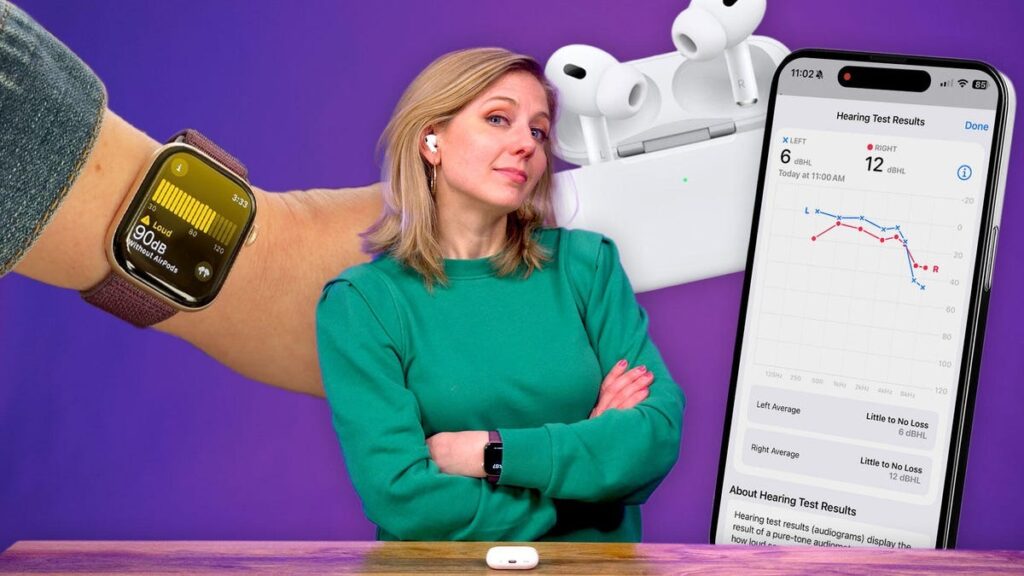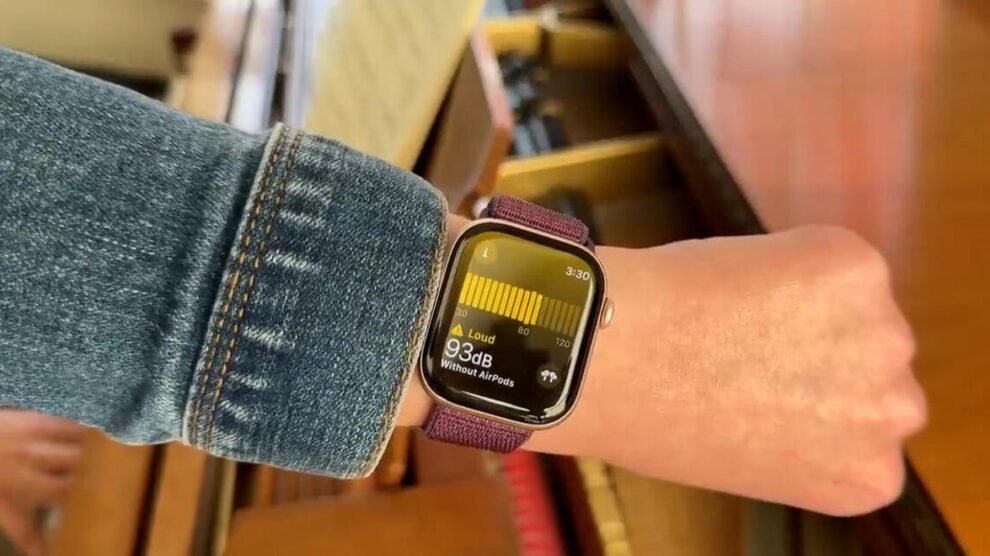In a groundbreaking move, Apple is set to transform its AirPods Pro 2 into FDA-authorized hearing aids through a software update, marking a significant leap in accessible hearing health technology. This development, slated for release next week in the US and Canada as part of iOS 18, promises to change the landscape of hearing health management and spark conversations about hearing wellness among users.

The Dawn of Personal Hearing Health Monitoring
Apple’s new hearing health software for AirPods Pro 2 introduces a user-friendly hearing test that provides detailed insights into an individual’s hearing capabilities. Early access to this feature revealed its potential to quantify hearing loss with precision, measuring decibel loss in each ear separately. For instance, the author’s test results showed a loss of 6 decibels in the left ear and 12 decibels in the right.
While these numbers might seem abstract at first, they lay the foundation for a more open dialogue about hearing health. As the software becomes widely available, users in the US and Canada may find themselves comparing hearing scores with family and friends, much like discussing eyesight prescriptions. This normalization of hearing health conversations could be a crucial step in addressing the growing concern of hearing loss in the United States.
Addressing a Growing Health Concern
The timing of this innovation is particularly significant given the rising prevalence of hearing loss in the United States. Current estimates suggest that 44.1 million American adults experience some degree of hearing loss, with more than half potentially benefiting from hearing aid use. However, research indicates that a majority of affected adults have not even attempted to use a hearing aid, highlighting a significant gap in hearing health management.
Apple’s approach of updating a widely-used consumer product with clinical-grade hearing aid functionality could be a game-changer in this context. By making hearing tests and aids more accessible and user-friendly, Apple may succeed in encouraging more individuals to take proactive steps in managing their hearing health.
The AirPods Pro 2 Hearing Test Experience
The hearing test process with AirPods Pro 2 is designed to be thorough yet user-friendly. Here’s what users can expect:
- Test Duration: Approximately 10 minutes
- Environment: Requires a very quiet setting; even distant noises can pause the test
- Procedure: Users tap the screen when they hear beeping tones, which become progressively fainter
- Preliminary Check: The software first verifies the proper seal of the ear tips
- Results Storage: Test outcomes are saved in the Health app and can be shared as a PDF
The test’s sensitivity to ambient noise underscores its precision, ensuring accurate results that can be relied upon for personal health insights or shared with healthcare professionals.
Beyond Testing: Proactive Hearing Protection
In addition to its diagnostic capabilities, the new software update includes enhanced “Hearing Protection” features. These are designed to safeguard users’ hearing by guarding against sustained exposure to loud sounds. Notably, this protective feature is enabled by default, reflecting Apple’s commitment to proactive hearing health management.
Implications for the Future of Hearing Health
The introduction of this technology in AirPods Pro 2 represents more than just a new feature; it signifies a potential shift in how society approaches hearing health. By integrating clinical-grade hearing aid functionality into a popular consumer device, Apple is democratizing access to hearing health tools and potentially reducing the stigma associated with hearing aids.
As users begin to engage with this technology, several outcomes are possible:
- Increased awareness of personal hearing health
- Earlier detection and intervention for hearing loss
- Reduced barriers to trying hearing aid technology
- Normalization of conversations about hearing health
- Potential for long-term data collection on hearing health trends
Looking Ahead
As this technology becomes available to the public, it will be crucial to monitor its adoption and impact. Will it lead to increased diagnosis and treatment of hearing loss? How will it affect the traditional hearing aid industry? And most importantly, will it improve the quality of life for those experiencing hearing difficulties?
While these questions remain to be answered, one thing is clear: Apple’s move to transform AirPods Pro 2 into hearing aids marks a significant step in the intersection of consumer technology and healthcare. As we move forward, it may well set a new standard for how we approach and manage our hearing health in the digital age.










Add Comment